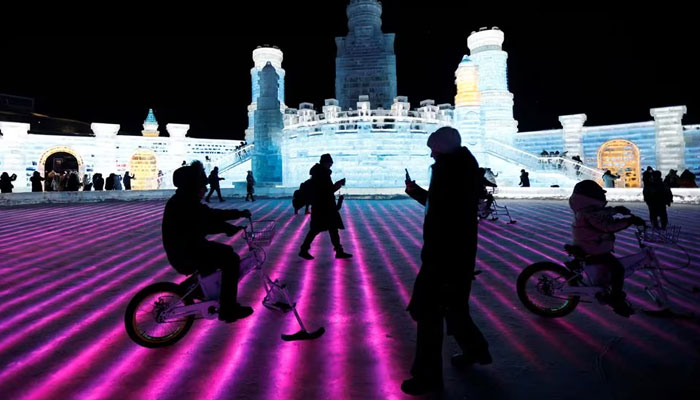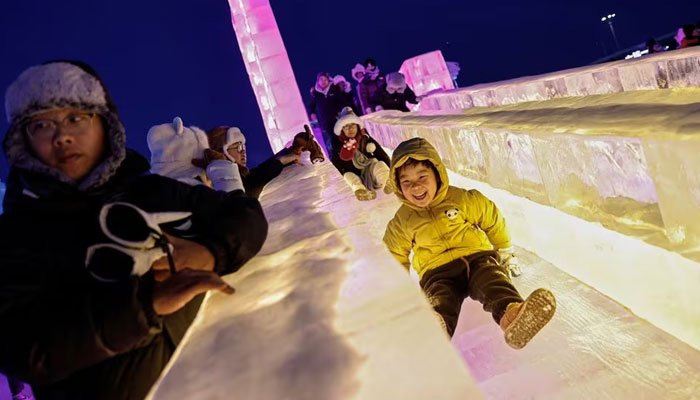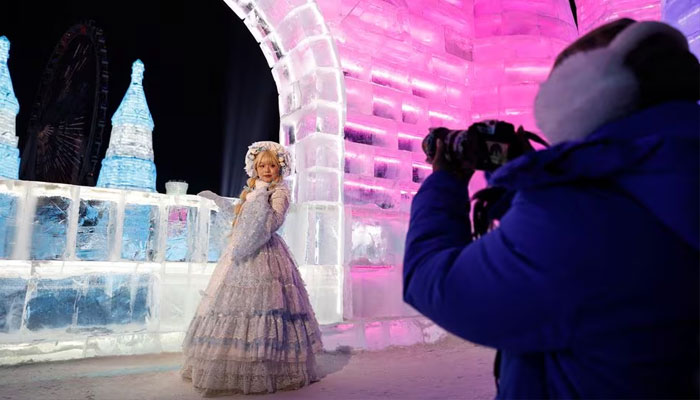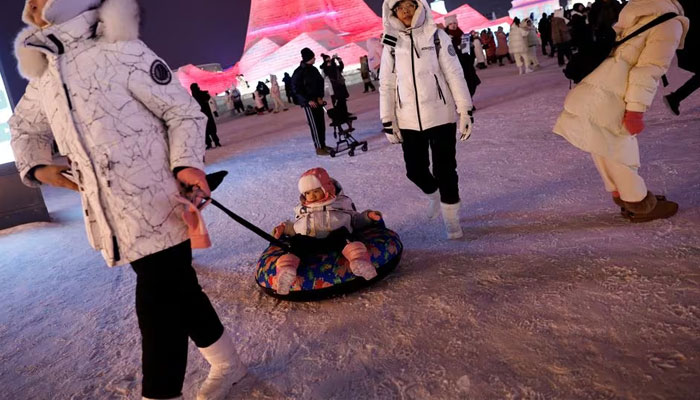[ad_1]
The festival has become a winter wonderland illuminated by vibrant lights at night

The enchanting annual Ice and Snow Festival in Harbin, China, opened its doors, captivating tourists with sprawling fairy-tale ice sculptures.
Spanning 810,000 sq metres and adorned with 250,000 cubic metres of meticulously carved ice from the frozen Songhua River, the festival has become a winter wonderland illuminated by vibrant lights at night.
The sculptures, some towering multiple stories high, showcase Chinese-style structures, bridges, fairy-tale castles, and even a rendition of Beijing’s Temple of Heaven.

The park also features ice slides for both children and adults, creating a magical experience.
Sun Zemin, the marketing vice director of the festival, noted a significant surge in daily visitors, reaching around 30,000 this year, compared to 18,500 in 2018.
The popularity of the festival has contributed to fully booked hotel rooms in Harbin, extending into the Spring Festival in February. Over the New Year holidays, the festival park saw a fivefold increase in visitors compared to the previous year, reaching 163,200 people and generating 46.18 million yuan ($6.45 million) in income.

Harbin, the capital city of Heilongjiang province in northern China, near the Russian border, has experienced a surge in interest during this winter season.
Social media posts capturing visitors from the warmer south, dubbed “Southern Little Potatoes” by locals, fueled the city’s popularity as an icy destination.

The influx of tourists, approximately 3.05 million during the winter holidays, has been hailed as an “ice and snow miracle” by Heilongjiang’s culture and tourism department.
As the first winter holiday after pandemic restrictions were lifted, Harbin has become a sought-after destination, attracting people eager to relax and enjoy the winter festivities.
The festival’s success marks a crucial revival for Harbin’s “ice and snow” economy, with this year’s winter proving to be a pivotal season for the city’s tourism industry.
[ad_2]
Source link

